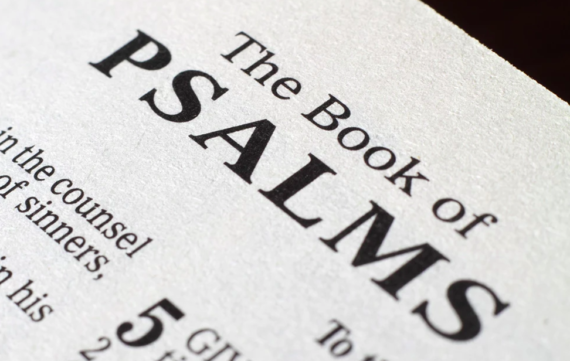We will not be covering the entire psalm this time but focusing on a few verses that express a main theme of the psalm in a forceful manner.
What is said in this psalm is based upon a particular view of God. If we want to understand the psalm we must, as much as possible, understand the writer’s view of the nature of God.
One aspect of that view is expressed most clearly in verses 4-6. Another aspect of that view is expressed most clearly in verse 7.




Before looking at how the writer views God, we might want to admit our own preconceived ideas. It is likely that we have two contradictory views of God dancing around in our minds. We may view God as an angry tyrant. Or we may view him indulgent “grandfather in heaven” (some folks say, a Santa Claus figure or a mother in heaven).
Serious about Sin
What we are told here is that God is serious about dealing with sin. Despite what you may have heard or previously believed; God will not tolerate sin.
4 For you are not a God who delights in wickedness; evil may not dwell with you.
5 The boastful shall not stand before your eyes; you hate all evildoers.
6 You destroy those who speak lies; the Lord abhors the bloodthirsty and deceitful man.
The view of God expressed here is found throughout the Bible. Nahum 1:3 “The Lord is slow to anger and great in power, and the Lord will by no means clear the guilty.” This is not just an Old Testament teaching. The Bible closes with a book that promises, as part of the Gospel, that sin will be dealt with.“Then I saw another angel flying directly overhead, with an eternal gospel to proclaim to those who dwell on earth, to every nation and tribe and language and people. 7And he said with a loud voice, “Fear God and give him glory, because the hour of his judgment has come, and worship him who made heaven and earth, the sea and the springs of water” (Rev 14:6-7, underlining added).1
It matters not what we think. It matters not what we want to believe. It matters nothing what the majority believe. There will be no sin tolerated in heaven.
Two Ways of Dealing with Sin
But there is another side to this truth that we must also note, God will deal with sin in more than one way. Some sin will be dealt with by destroying the sinner. That is the message of verses 5-6.
But other sin will be dealt with by cleansing the sinner. The writer goes on, “But I, through the abundance of your steadfast love, will enter your house. I will bow down toward your holy temple in the fear of you” (7). It is by God’s “steadfast love” that the writer expects to enter God’s house. Centuries later John will state, “If we confess our sins, he is faithful and just to forgive us our sins and to cleanse us from all unrighteousness” (1 John 1:9). God does not just let people into heaven, sin and all. No, he cleanses those who will accept the cleansing. He rejects those who refuse the cleansing.
Let no one deceive you, God will not tolerate sin.
Let no one discourage you, God is willing to cleanse you of your sin.
But he will not, he cannot, condone our sin and remain the God that he is.
Do not be deceived into thinking that you can remain in your sin.
Do not be deceived into thinking that you are expected to remove your own sin. Allow him to do that.
1 “One should beware of any bogus morality that dismisses vengeance as both inappropriate to humans and unworthy of God. Such a view simply betrays a glaring absence of the most elementary sense of justice. While the desire to see vengeance done can be twisted and corrupted like any other human desire, it arises out of a sense of justice, and vengeance cannot be discarded without discarding the concern for justice as well.” J.J.M. Roberts Nahum, Habakkuk, and Zephaniah. (Louisville: Westminster/John Knox Press, 1991), page 49.

